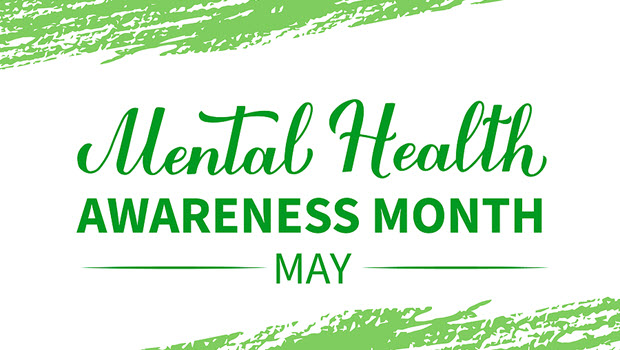Mental health is just as important as physical health when it comes to our quality of life. May is Mental Health Awareness Month and this month provides an opportunity to increase awareness about the role of mental health and to share resources and information to help those who may need mental health support.
A 2022 report from the Agency for Healthcare Research and Quality found that nearly 20% of children and young people ages 3-17 in the United States have a mental, emotional, developmental, or behavioral disorder, and mental health challenges were the leading cause of death and disability in this age group.
Teachers can often be the first to notice signs that a student is struggling. The Substance Abuse and Mental Health Services Administration recommends that teachers consult with a school counselor, nurse, or administrator and the student’s parents if you observe one or more of the following behaviors:
- Feeling very sad or withdrawn for more than two weeks
- Seriously trying to harm oneself, or making plans to do so
- Sudden overwhelming fear for no reason, sometimes with a racing heart or fast breathing
- Involvement in many fights or desire to badly hurt others
- Severe out-of-control behavior that can hurt oneself or others
- Not eating, throwing up, or using laxatives to make oneself lose weight
- Intense worries or fears that get in the way of daily activities
- Extreme difficulty concentrating or staying still that puts the student in physical danger or causes problems in the classroom
- Repeated use of drugs or alcohol
- Severe mood swings that cause problems in relationships
- Drastic changes in the student’s behavior or personality
When parents don’t know where to turn for an urgent mental health or substance misuse concern, they can seek out a walk-in Urgent Crises Center for children and teens located in one of four cities around the state.
Support for Educators and Their Families
When a teacher finds themselves or a family member is experiencing mental health struggles, getting support from a licensed mental health professional is crucial. The Mental Health Parity Act requires health insurance coverage for mental health conditions, including substance use disorders, to be no more restrictive than insurance coverage for other medical conditions.
A call to your primary care physician is an excellent first step for getting a referral and recommendations for mental health professionals—who can include social workers, family therapists, psychologists, and psychiatrists.
In addition to your health insurance coverage, your district may have an Employee Assistance Program, which can be another place to turn. Check with your local association president or your district’s HR department to find out if you have access to an AEP. The therapist you connect to through an AEP will do an initial intake and evaluation with you or your family member and provide a few visits before making a referral to a local mental health professional.
Additional Resources
- Tips for supporting children’s mental wellness from the National Association of School Psychologists.
- Classroom WISE provides evidence-based strategies for supporting student mental health in the classroom.
- The National Alliance for Mental Health provides tips for helping anyone living with a mental health condition.







